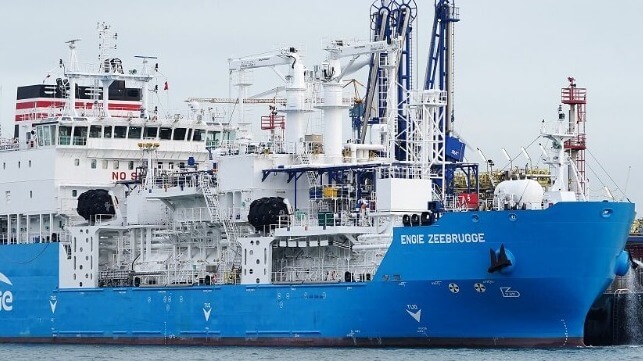Danish Shipping: EU Emissions Regs Should be Aligned on Scope

In a new report, the industry association Danish Shipping says that the European Union's twin greenhouse-gas policy initiatives for the maritime sector - FuelEU Maritime and the Emissions Trading System (ETS) - will need to be adjusted if they are going to work well together.
"As the proposals from the Commission are, there is room for improvement and the need for unification," said Maria Skipper Schwenn, Director of Climate, Environment and Safety at Danish Shipping. "It is a pity, and therefore we hope that with the report here we can help to remedy this."
In the coming years, FuelEU Maritime will require shipping companies to use more and more "green" fuel in their operations. Meanwhile, the ETS will set a price on CO2 emissions to incentivize the use of low-carbon fuels.
However, the two programs evaluate progress using different measures. While FuelEU Maritime looks at all greenhouse gases on a "well-to-wake" basis, ETS only considers CO2 - leaving out methane, a key emissions consideration for natural gas. In addition, the ETS only looks at emissions from fuel combustion on board the vessel, not during fuel production and transport.
"Both tools will reduce greenhouse gases, but if they are to function optimally and contribute to the most effective reduction, the two bills must be adjusted so that they fit better together," said Maria Skipper Schwenn. "In general, we meet great interest in the problem and the task is now to ensure that necessary changes are incorporated in the ETS proposal."
Danish Shipping proposes that the EU should apply the ETS to all greenhouse gases equally, and to the entire fuel value chain. This would have the effect of capturing the full lifecycle emissions of LNG as a marine fuel, including methane emissions.
The association's proposals stem from a technical study performed by CE Delft. As currently structured, the regulations both promote uptake of LNG, but the study found that they create conflicting incentives because the ETS leaves out methane.

that matters most
Get the latest maritime news delivered to your inbox daily.
"EU ETS incentivizes the use of an LNG/renewable methane blend using a blend with relatively high well-to-wake greenhouse gas emissions and the use of an engine with relatively high methane slip," concluded CE Delft in a report for Danish Shipping. "FuelEU Maritime [favors] the use of 100 percent fossil LNG and the use of an engine with relatively low methane slip."
Top image: LNG bunker vessel at Zeebrugge (Kees Torn / CC BY SA 2.0)
